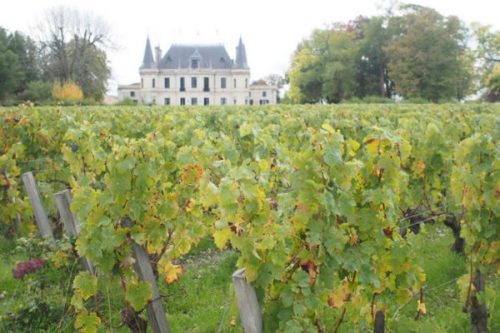
Bordeaux. It’s the world’s most famous wine region, but peoples’ perceptions of this place are dominated by the 4% or so of famous properties that sit right at the top of the tree. The celebrity estates deserve their accolades: this region is home to some of the world’s most sought-after wines. But there is more to Bordeaux than just this narrow spectrum of high-end wines. I visited to have a look at the Alternative Bordeaux, and I’m reporting this in a series of short articles and films. We’ll begin with one of the famous properties, Château Palmer, and the story of the shift in Bordeaux to organic and biodynamic farming, which has been a long time coming. Then, sticking with the classed growths, we visit Lafon Rochet, who have also experimented with organics, but found it less satisfying. Then it’s off to Falfas, one of the pioneering biodynamic properties. Another of the lesser told Bordeaux stories is that of the white wines and the sweet wines. And then there are properties in less fashionable areas who are working with good terroirs, and working more naturally in the cellar, to make interesting wines that normal people can afford. This is Alternative Bordeaux.
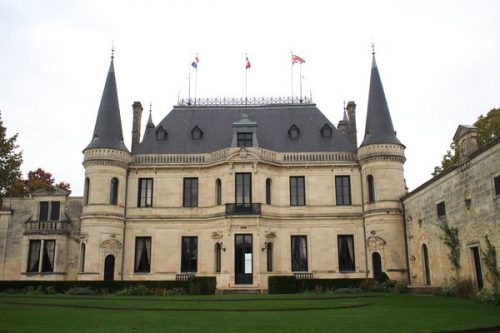
We visited Palmer, in Margaux, with CEO Thomas Duroux. It was vintage time, and grapes were being received, but the main focus of the visit was to hear about the transition toward biodynamic farming that began here with trials just after the 2008 vintage.
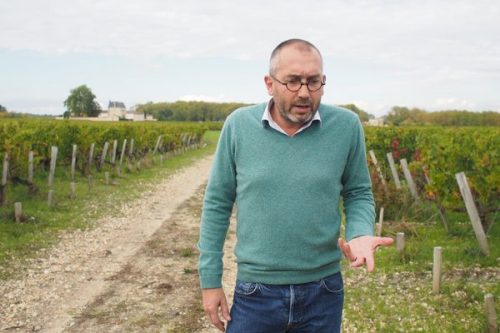
First of all we wandered around the 66 hectare vineyard. The core of the vineyard is an alluvial gravel terrace, with pebbles that have come from the mountains. But what makes the difference is the dirt around these stones. Typically, there might be 30 cm of gravel and sand, then underneath this 80 cm of gravel and clay, and then gravel and sand again. The clay is important because this can retain water, and then of there’s too much water, this can be drained by the lower layers of gravel and sand.
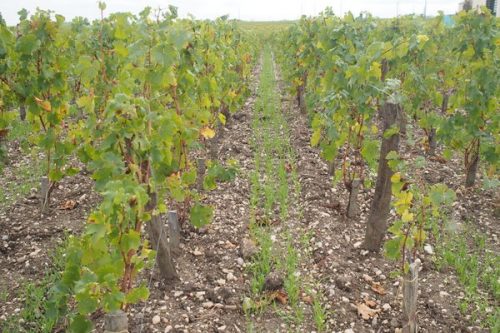
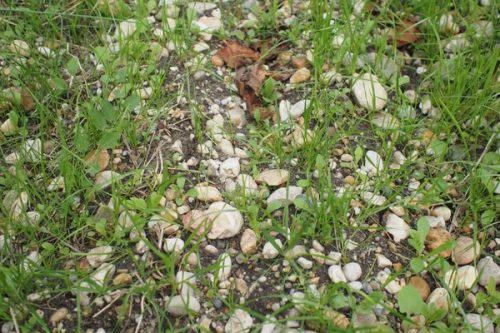

Several years ago Palmer did a study that attempted to map and understand the diversity of the soils on the property. They used electroconductivity to try and map where the boundaries were, and then once they’d identified homogeneous blocks, they looked ay the soils. They also used NDVI (normalized difference vegetation index, looking at the vigour of the vines remotely). So, for example, where there’s too much nitrogen, they might grow a cover crop and then remove the plants.
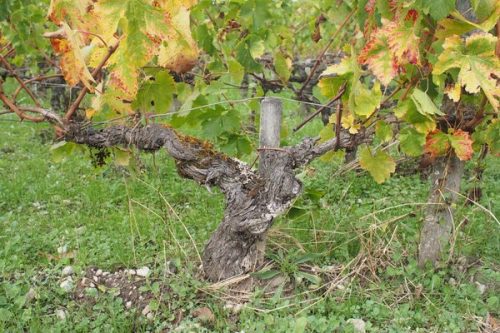
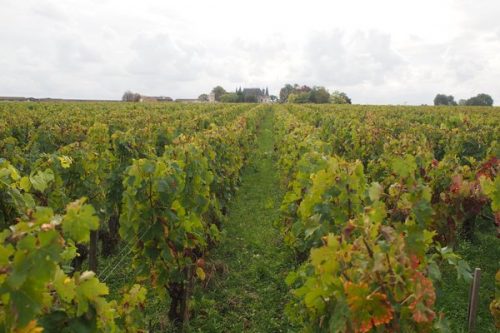

But the big shift has been the move to biodynamics. They took a 1.5 hectare experimental block in 2009 and divided it into two portions, one farmed classically, and one farmed with biodynamics. They had guidance in biodynamics from Matthieu Bouchet, whose father François was a pioneer in using this way of farming in French viticulture.
‘In the beginning, we had no idea what biodynamics was,’ says Duroux, ‘but we felt the best way to understand it better was to experiment. Slowly but surely we saw that it was doable. We saw that the wines were not worse than the other wines, so we thought, why not?’ Gradually the experiment expanded. ‘Instead of being humans in a factory, we became part of the place: part of a living organism. It is a very different approach.’
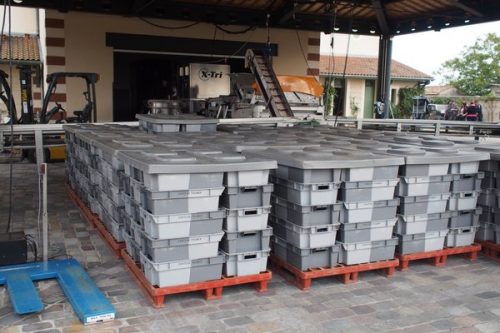
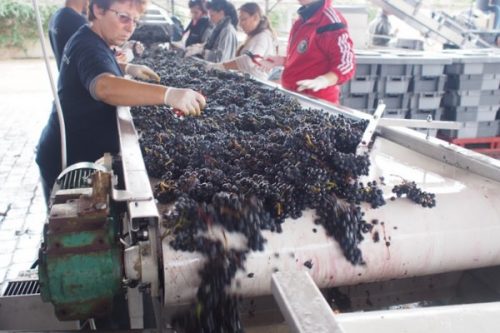
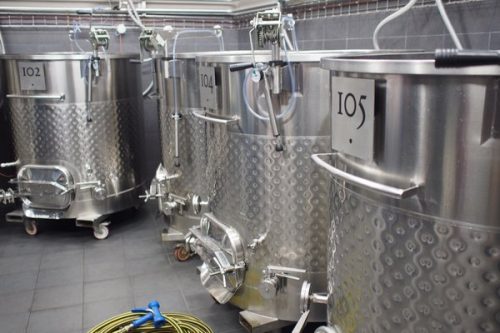
Duroux had to convince the owners that it was an interesting direction to take, which he did, and then after the 2013 harvest the entire Palmer vineyard was moved to biodynamics. ‘There is this idea that biodynamics is another step after organics. I think it’s not: it’s a different way to see agrictulture,’ he says. ‘The difference is when you apply the biodynamic principles you see the farm as an ensemble. You can still be an organic farmer and see your farm as a factory.’
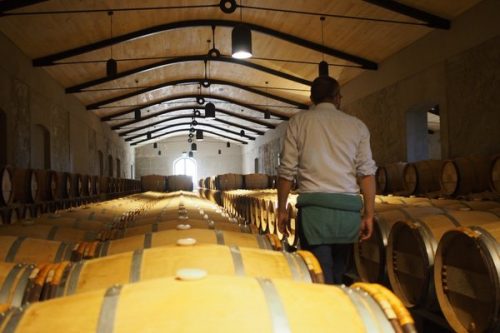

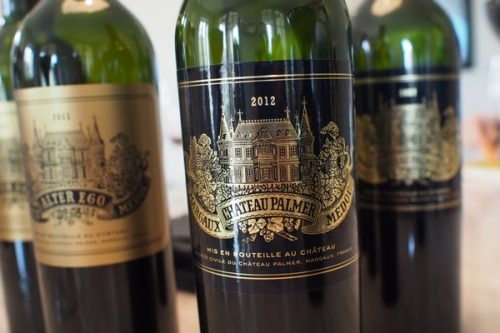
Now they let a lot of natural cover crop grow. They use sheep in winter to mow and to fertilize, and they have cows to produce their own compost. ‘There are lots of different ways to describe biodynamics, but the most important idea for us is that of a living organism.’
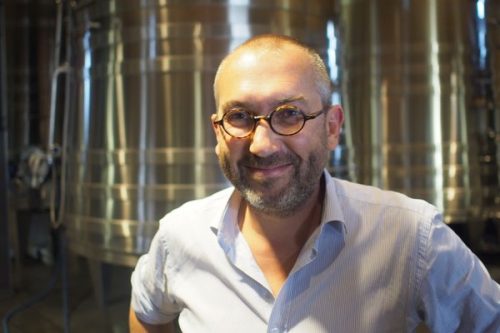
The biggest challenge so far has been the weather during the 2016 growing season. ‘We had one of the most terrible springs of the last 20 years, with lots of mildew pressure, including a week of constant rain in June,’ says Duroux. They lost 25% of the crop to downy mildew, with a yield from 2016 of 30 hl/ha when normally they’d get 40 hl/ha. ‘The future is now against chemicals,’ says Duroux. His challenge is to explain a quarter crop loss to the board!
‘I’m also convinced the wines are different, and taste different,’ he says. ‘What I really see in the wine now is that there is much more definition.’
A film of the visit, including some harvest action and an interview with Thomas:
Alter Ego changed a lot when we tried to make this wine for itself instead of using left overs from Palmer. If there’s not the potential, why would you try to make a wine with big shoulders?’
We tried both wines from 2012. ‘2012 was another late harvest vintage with a big contrast between the classic Cabernet and the exuberant Merlot, so it was a challenge for us to see how they would work together.’
Château Palmer Alter Ego 2012 Margaux, Bordeaux
Fresh, supple black cherry and blackberry fruit with a lovely savoury edge to it. Good acid and structure with a leanness and focus to the black fruits. Nice purity and lovely precision with some raspberry freshness and a bit of gravelly tannic grip on the finish. Not as concentrated as the Grand Vin but a lovely wine in its own right. Could probably do with a few more years before broaching. 93/100
Château Palmer 2012 Margaux, Bordeaux
Concentrated, fresh and very fine with sleek black cherry and blackberry fruit. Such finesse and purity here: there’s almost perfect balance between the different elements. There’s some sweet black fruit character, a touch of salty liquorice, nice acidity and some fine-grained tannic structure. Great concentration of flavour. This has lots of potential for the future, although you could just about open it now. A lovely wine. 95/100
Then we looked at the 2011 Alter Ego. ‘2011 is a very different vintage. 2012 was late; 2011 was early. 1 June we had a hailstorm that affected 90% of the vineyard and we lost half the crop, 20 hl/ha. It hurt.’
Château Palmer Alter Ego 2011 Margaux, Bordeaux
Focused and bright with some raspberry brightness to the blackcurrant fruit. Fresh, lively and grippy with some tar and spice notes. Fresh, linear and a bit chalky and with some tannic structure. Dense and focused with firmness and potential for development. A little strict with the sweet fruit hemmed in by the structure. 92/100
And then the 2007. ‘2007 is a lighter vintage but one that I like a lot. After 9 years it really shows what you look for in a wine with a bit of evolution. There’s a place for every vintage.’
Château Palmer 2007 Margaux, Bordeaux
Quite classic, with lovely chalky, gravelly black fruits, some dried herbs, a bit of undergrowth and supple cherry fruit. Showing some maturity, this has concentration and also elegance, and is drinking beautifully now with a touch of damson and stewed plums alongside the black fruits. Lovely complexity here. There’s smoothness here too. Drinking so well now. 94/100
Finally, the 2015. ‘What I like about 2015 is that it’s not a super-exuberant vintage; it’s not over the top,’ says Duroux.
Château Palmer 2015 Margaux, Bordeaux
Tight, focused and concentrated with dense black cherry and blackberry fruit. Fresh and quite complex with firm tannins. Has a slight saltiness, with grippy tannins providing the necessary structure. Detailed and dense with lovely precision. 97/100
Alternative Bordeaux
- Biodynamics at Château Palmer
- Château Falfas, Côtes de Bourg
- Experimenting with organics at Lafon-Rochet
- Organic farming in the Cru Bourgeois
- Natural wines at Château Peybonhomme
- White wines with the Dubourdieus
1 Comment on Alternative Bordeaux (1) biodynamics at Château Palmer
Have to agree, the Chateau Palmer wines are lovely. Tasted in and around the estate a few years back, and was duly impressed. Last tasting was of 2009, so this was a nice reminder to revisit the wines. Happy to read your notes.